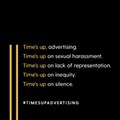#WomensMonth: How Elevator's female leaders have shattered the glass ceiling

The accomplishments of the female senior management team at Elevator read like a career bucket list.
There’s Catherine Mavrocoleas, who became the only female shareholder of Elevator agency when it was still known as Stretch, five years ago; digital director Michelle Geere, who worked on the tweeting badger campaign before joining Elevator; client service director Katherine Freemantle, who says it’s our collective responsibility to support more women in leadership roles; HR director Imaan Kherekar, who has fully digitised HR at the agency; head of finance, Abeeda Johardien, with strong views on the importance of mentorship; and head of production, Bianca de Vogel, brimming with know-how on the positive outcomes of gender diversity in the workplace.
Here, the six share their views on what can be done to equalise the gender ratio and the pay scale differences that arise as a result of the workforce reflecting a largely male leadership…
Being the only woman on the board of a company, and having two children in the space of three years meant I needed to define, educate and fight for a favourable maternity policy and flexible working times, which is now being implemented throughout the company for other working moms. List a few of the career highlights and challenges you’ve faced thus far.
List a few of the career highlights and challenges you’ve faced thus far.
Mavrocoleas: My highlights include growing Stretch from eight people to Elevator Agency, which is 50 people, in just five years. One of the main challenges has been growing a company from startup phase in 2012 to a globally owned agency in 2018.
Geere: A highlight was working on the Johannesburg Zoo’s Tweeting Badger campaign, where I learnt the impact of integrating technology with traditional communications to solve real business problems, innovatively.
As for challenges, I constantly question the status quo. My most uncomfortable space in business is when things aren’t challenged, but rather accepted without questioning.
Freemantle: Highlights include the amazing teams that I have helped to develop and seeing where they are in their careers now, working with some of the most outstanding creative minds in the business and the privilege of leading exciting product campaigns together with clever and collaborative clients.
Challenges include some of the things that make advertising what it is: Tight budgets, impossible timelines, strong wills, indecisive clients and cumbersome processes.
Kherekar: My career highlights as an HR director definitely comes from my time employed at Stretch/Elevator for five-and-a-half years. Career highlights that helped shaped me include:
- Getting to know the business: What we do, how we do it and the challenges we face.
- Defining and implementing policies and procedures that work for the business.
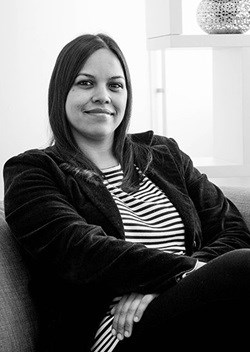 Abeeda Johardien.
Abeeda Johardien. - Fully digitising HR
Johardien: Most of my career highlights were fostered within Elevator.
In my current position, I am given so much opportunity to share my ideas, showcase my skills and experience and nurture and develop colleagues in my team.
One of the biggest challenges I face daily is the battle to strike a balance between family and work life.
I think a lot of women share my sentiments that to sacrifice one in favour of the other comes with a lot of guilt and criticism.
Geere: Female leadership is more inclusive, risk-averse and focused on long-term success rather than short-term gain. Elaborate on the importance of female leadership, especially in this time of the 3% Movement and increasing calls for inclusion and diversity.
Elaborate on the importance of female leadership, especially in this time of the 3% Movement and increasing calls for inclusion and diversity.
Mavrocoleas: Female leadership is key to the diverse nature of our industry. Luckily in client service it is easier to have majority staff as female, but within creative departments it is important to purposely hire females and have as many people of different cultures and gender within your teams as possible.
Fortune has published some interesting thoughts on female leadership traits, and how they could have prevented the financial crises on Wall Street.
I have a strong belief that these leadership traits are not due to the female nature, but rather a result of having to navigate the pressures of society.
Freemantle:Attracting women to the creative industry require leaders who understand, appreciate and reflect diversity. The survival of the industry depends on it. And movements like 3% have proven successful in championing this call and leading to meaningful results – with the percentage of female creative directors increasing to 11% in only a few years.
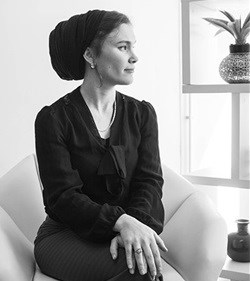
Kherekar: There is an old stereotype that goes, “If women ran the world, there would be no wars.” I couldn’t agree more. Research shows that more gender diversity can translate into increased productivity, gender innovation, better decision-making and higher employee retention and satisfaction.
Johardien: Women bring a wealth of experience, knowledge and talent into the workplace and employers with a more diverse workforce are proven to be more successful, because diversity spells increased opportunities for innovation, collaboration, varied perspectives on problem-solving and efficiencies.
De Vogel:There's something to be said for more women in leadership positions. According to a Morgan Stanley report, "more gender diversity, particularly in corporate settings, can translate to increased productivity, greater innovation, better products, better decision-making, and higher employee retention and satisfaction."
Women are adaptable, hard-working and amazing multitaskers, making them a valuable workforce, but if companies don’t evolve to have flexible work hours and good maternity benefits, they are going to lose valuable women and create a glass ceiling for anyone wanting a successful career and a family. Does the ‘glass ceiling’ exist for females in SA business? Explain your reasoning.
Does the ‘glass ceiling’ exist for females in SA business? Explain your reasoning.
Mavrocoleas: I don’t think there is a glass ceiling per se, but I do think being a women with a demanding career who also wants a family is hard work and hard to balance both.
Geere: Most definitely. I think the intention to change is there, however the actual application is a bit more difficult. In order to change the ‘glass ceiling’, we first need to be aware of our bias and then act with purpose.
Elevator is the first agency I’ve experienced where the intention to change is far more than a PR story, but a true belief.
While there are powerful women growing within this space, they have more of a fight to get to high-level positions and need to ‘prove’ themselves in a far bigger way in order to validate their success.
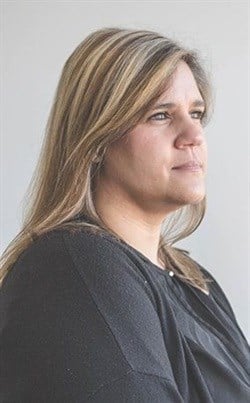
Kherekar: According to Stats SA, women make up 51% of the population. The stats go further to show that only 44 out 100 employed people are women in skilled positions, and this position hasn’t changed since 2002.
I believe there will be a shift when we are able to meet the 50% employment mark, whereby women have roles that provide influence.
Johardien: The glass ceiling is very tangible for females in this country. Though women are currently more present in the workplace than ever before, our absence at executive level is still very apparent.
Some contributing factors are lack of support for women who are forced to put their careers on hold to raise a family, which means they’re given lesser responsibility in their work positions.
De Vogel: Yes, There is much work to be done in terms of levelling the playing field for businesswomen, and with so many obstacles in place, it may seem as though the glass ceiling will remain forever intact, but there is hope yet.
I believe every woman who is currently in a leadership position needs to fight for equal rights and salaries. Share your thoughts on what more can be done to equalise not only the gender ratio but also the pay scale differences that arise, as a result of the workforce still reflecting largely male leadership.
Share your thoughts on what more can be done to equalise not only the gender ratio but also the pay scale differences that arise, as a result of the workforce still reflecting largely male leadership.
Mavrocoleas:
Talking about the issues that women face and educating all employees and male leaders on the importance of gender rights is key to creating a shift in the industry.
If your leaders refuse to hear you, you need to find leaders who are on-board with gender equality.
Male leaders, who do understand the importance of gender equality need to do their bit to educate their peers to do the same.
Geere: I think two things can be done:
- Women need to be confident, brave and truly believe they’re worth it – fighting for their positions and to have a say.
- Companies need to be more ‘woke’. They need to create a culture that truly believes in this important change, rather than just talk about it.
Freemantle:
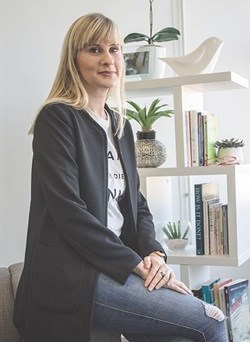
The more that top management within companies embraces females in senior positions and sees their value as equal, the more this inequality will be balanced.
We should have mentorship programmes for women and make more of an effort to teach both males and females about gender discrimination in the workplace.
We should also promote campaigns which have done well from both a campaign and client ROI point of view, which are run by women, for female clients or audiences.
Kherekar: Create opportunities – not only a position but also a career path for women in leadership roles. Upskill the current women in the workforce to take on more senior roles.
Johardien: Companies can do more to openly praise and recognise top female performers to promote a positive attitude and culture towards gender equality, not only in the workplace but in society too. Employers should also encourage their female employees to be mentors and role models to their colleagues.
Here’s to Elevator’s continued success in equalising the playing field for women who work, and hoping that the sentiment seeps into the rest of the industry. Visit the Elevator press office and follow them on LinkedIn, Twitter, Instagram and Facebook for the latest updates.













